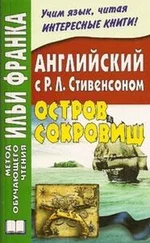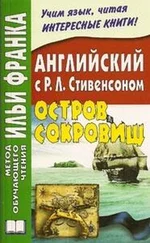Роберт Стивенсон - Essays of Travel
Здесь есть возможность читать онлайн «Роберт Стивенсон - Essays of Travel» — ознакомительный отрывок электронной книги совершенно бесплатно, а после прочтения отрывка купить полную версию. В некоторых случаях можно слушать аудио, скачать через торрент в формате fb2 и присутствует краткое содержание. Жанр: literature_19, foreign_antique, foreign_prose, Путешествия и география, на английском языке. Описание произведения, (предисловие) а так же отзывы посетителей доступны на портале библиотеки ЛибКат.
- Название:Essays of Travel
- Автор:
- Жанр:
- Год:неизвестен
- ISBN:нет данных
- Рейтинг книги:3 / 5. Голосов: 1
-
Избранное:Добавить в избранное
- Отзывы:
-
Ваша оценка:
- 60
- 1
- 2
- 3
- 4
- 5
Essays of Travel: краткое содержание, описание и аннотация
Предлагаем к чтению аннотацию, описание, краткое содержание или предисловие (зависит от того, что написал сам автор книги «Essays of Travel»). Если вы не нашли необходимую информацию о книге — напишите в комментариях, мы постараемся отыскать её.
Essays of Travel — читать онлайн ознакомительный отрывок
Ниже представлен текст книги, разбитый по страницам. Система сохранения места последней прочитанной страницы, позволяет с удобством читать онлайн бесплатно книгу «Essays of Travel», без необходимости каждый раз заново искать на чём Вы остановились. Поставьте закладку, и сможете в любой момент перейти на страницу, на которой закончили чтение.
Интервал:
Закладка:
This is the closet picture, and is found, on trial, to consist mostly of embellishments. The more I saw of my fellow-passengers, the less I was tempted to the lyric note. Comparatively few of the men were below thirty; many were married, and encumbered with families; not a few were already up in years; and this itself was out of tune with my imaginations, for the ideal emigrant should certainly be young. Again, I thought he should offer to the eye some bold type of humanity, with bluff or hawk-like features, and the stamp of an eager and pushing disposition. Now those around me were for the most part quiet, orderly, obedient citizens, family men broken by adversity, elderly youths who had failed to place themselves in life, and people who had seen better days. Mildness was the prevailing character; mild mirth and mild endurance. In a word, I was not taking part in an impetuous and conquering sally, such as swept over Mexico or Siberia, but found myself, like Marmion, ‘in the lost battle, borne down by the flying.’
Labouring mankind had in the last years, and throughout Great Britain, sustained a prolonged and crushing series of defeats. I had heard vaguely of these reverses; of whole streets of houses standing deserted by the Tyne, the cellar-doors broken and removed for firewood; of homeless men loitering at the street-corners of Glasgow with their chests beside them; of closed factories, useless strikes, and starving girls. But I had never taken them home to me or represented these distresses livingly to my imagination.
A turn of the market may be a calamity as disastrous as the French retreat from Moscow; but it hardly lends itself to lively treatment, and makes a trifling figure in the morning papers. We may struggle as we please, we are not born economists. The individual is more affecting than the mass. It is by the scenic accidents, and the appeal to the carnal eye, that for the most part we grasp the significance of tragedies. Thus it was only now, when I found myself involved in the rout, that I began to appreciate how sharp had been the battle. We were a company of the rejected; the drunken, the incompetent, the weak, the prodigal, all who had been unable to prevail against circumstances in the one land, were now fleeing pitifully to another; and though one or two might still succeed, all had already failed. We were a shipful of failures, the broken men of England. Yet it must not be supposed that these people exhibited depression. The scene, on the contrary, was cheerful. Not a tear was shed on board the vessel. All were full of hope for the future, and showed an inclination to innocent gaiety. Some were heard to sing, and all began to scrape acquaintance with small jests and ready laughter.
The children found each other out like dogs, and ran about the decks scraping acquaintance after their fashion also. ‘What do you call your mither?’ I heard one ask. ‘Mawmaw,’ was the reply, indicating, I fancy, a shade of difference in the social scale. When people pass each other on the high seas of life at so early an age, the contact is but slight, and the relation more like what we may imagine to be the friendship of flies than that of men; it is so quickly joined, so easily dissolved, so open in its communications and so devoid of deeper human qualities. The children, I observed, were all in a band, and as thick as thieves at a fair, while their elders were still ceremoniously manœuvring on the outskirts of acquaintance. The sea, the ship, and the seamen were soon as familiar as home to these half-conscious little ones. It was odd to hear them, throughout the voyage, employ shore words to designate portions of the vessel. ‘Go ’way doon to yon dyke,’ I heard one say, probably meaning the bulwark. I often had my heart in my mouth, watching them climb into the shrouds or on the rails, while the ship went swinging through the waves; and I admired and envied the courage of their mothers, who sat by in the sun and looked on with composure at these perilous feats. ‘He’ll maybe be a sailor,’ I heard one remark; ‘now’s the time to learn.’ I had been on the point of running forward to interfere, but stood back at that, reproved. Very few in the more delicate classes have the nerve to look upon the peril of one dear to them; but the life of poorer folk, where necessity is so much more immediate and imperious, braces even a mother to this extreme of endurance. And perhaps, after all, it is better that the lad should break his neck than that you should break his spirit.
And since I am here on the chapter of the children, I must mention one little fellow, whose family belonged to Steerage No. 4 and 5, and who, wherever he went, was like a strain of music round the ship. He was an ugly, merry, unbreeched child of three, his lint-white hair in a tangle, his face smeared with suet and treacle; but he ran to and fro with so natural a step, and fell and picked himself up again with such grace and good-humour, that he might fairly be called beautiful when he was in motion. To meet him, crowing with laughter and beating an accompaniment to his own mirth with a tin spoon upon a tin cup, was to meet a little triumph of the human species. Even when his mother and the rest of his family lay sick and prostrate around him, he sat upright in their midst and sang aloud in the pleasant heartlessness of infancy.
Throughout the Friday, intimacy among us men made but a few advances. We discussed the probable duration of the voyage, we exchanged pieces of information, naming our trades, what we hoped to find in the new world, or what we were fleeing from in the old; and, above all, we condoled together over the food and the vileness of the steerage. One or two had been so near famine that you may say they had run into the ship with the devil at their heels; and to these all seemed for the best in the best of possible steamers. But the majority were hugely contented. Coming as they did from a country in so low a state as Great Britain, many of them from Glasgow, which commercially speaking was as good as dead, and many having long been out of work, I was surprised to find them so dainty in their notions. I myself lived almost exclusively on bread, porridge, and soup, precisely as it was supplied to them, and found it, if not luxurious, at least sufficient. But these working men were loud in their outcries. It was not ‘food for human beings,’ it was ‘only fit for pigs,’ it was ‘a disgrace.’ Many of them lived almost entirely upon biscuit, others on their own private supplies, and some paid extra for better rations from the ship. This marvellously changed my notion of the degree of luxury habitual to the artisan. I was prepared to hear him grumble, for grumbling is the traveller’s pastime; but I was not prepared to find him turn away from a diet which was palatable to myself. Words I should have disregarded, or taken with a liberal allowance; but when a man prefers dry biscuit there can be no question of the sincerity of his disgust.
With one of their complaints I could most heartily sympathise. A single night of the steerage had filled them with horror. I had myself suffered, even in my decent-second-cabin berth, from the lack of air; and as the night promised to be fine and quiet, I determined to sleep on deck, and advised all who complained of their quarters to follow my example. I dare say a dozen of others agreed to do so, and I thought we should have been quite a party. Yet, when I brought up my rug about seven bells, there was no one to be seen but the watch. That chimerical terror of good night-air, which makes men close their windows, list their doors, and seal themselves up with their own poisonous exhalations, had sent all these healthy workmen down below. One would think we had been brought up in a fever country; yet in England the most malarious districts are in the bedchambers.
I felt saddened at this defection, and yet half-pleased to have the night so quietly to myself. The wind had hauled a little ahead on the starboard bow, and was dry but chilly. I found a shelter near the fire-hole, and made myself snug for the night.
Читать дальшеИнтервал:
Закладка:
Похожие книги на «Essays of Travel»
Представляем Вашему вниманию похожие книги на «Essays of Travel» списком для выбора. Мы отобрали схожую по названию и смыслу литературу в надежде предоставить читателям больше вариантов отыскать новые, интересные, ещё непрочитанные произведения.
Обсуждение, отзывы о книге «Essays of Travel» и просто собственные мнения читателей. Оставьте ваши комментарии, напишите, что Вы думаете о произведении, его смысле или главных героях. Укажите что конкретно понравилось, а что нет, и почему Вы так считаете.










